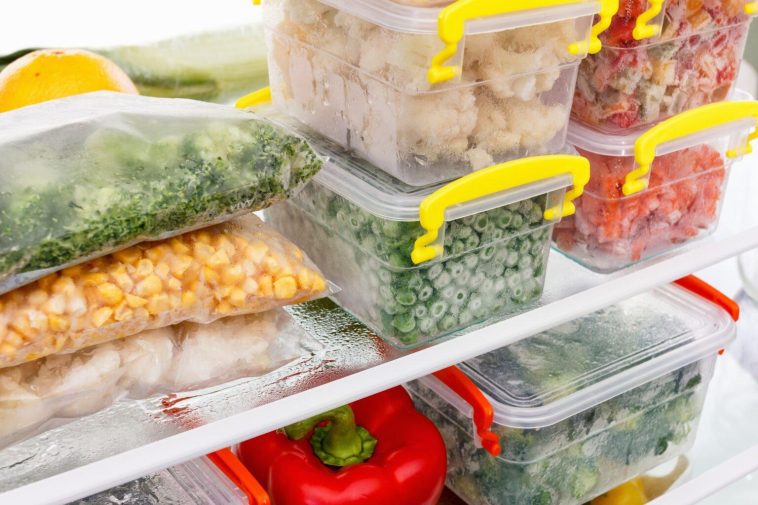If you run a restaurant, food service business, or commercial kitchen and need to store food for a long time, you need to know how to extend the shelf life of your products. This can be accomplished in one of two ways: deep freezing and blast chilling.
Blast chilling involves quickly immersing the product in cold water to stop the growth of any microorganisms. Without any problems, this will keep them fresh for 15 to 20 days. Items that have been frozen at least once before should only be frozen deep.
Professional chefs wearing waist aprons and men’s or women’s chef shirts claim that blast chilling and deep freezing, when done correctly, can extend the shelf life of food by weeks or even months. Any commercial kitchen that wants to save money and reduce waste may find this to be an indispensable tool.
Produce can be blasted chilled to extend its shelf life.
Certain types of food, like fruits and vegetables, can be blasted chilled quickly without causing any harm. If you want to keep your food looking and tasting great for a few more days, this method is ideal.
Use deep freezing to store large quantities of food
When storing large quantities of food, use deep freezing. Some foods, such as meat, seafood, poultry, dairy products, and baked goods, are better suited for deep freezing. In some cases, you can extend the shelf life up to a year by doing this. Before freezing any food, make sure to always carefully read the instructions on the packaging.
To preserve the quality of your food when freezing it, you must adhere to certain procedures. First and foremost, food items should always be properly packaged before freezing. This indicates that you should use packaging materials or containers that are airtight and resistant to moisture. Second, try to keep food from being exposed to higher temperatures for an extended period of time. The growth of bacteria and other contaminants will be hindered by this. Last but not least, don’t forget to write the date they were frozen on the labels of all of your frozen food items.
Blast chilling and deep freezing are two great options to consider if you want to extend the shelf life of your food. By using cold air or liquid nitrogen, blast chilling quickly cools food, while deep freezing preserves food by keeping it below zero degrees Celsius.
Freeze sauces, soups, and stocks in ice cube trays for quick use later on
For immediate use later, freeze stocks, soups, and sauces in ice cube trays. Liquids like these can be frozen in their original containers without requiring any additional steps. Before placing these items in ice cube trays, simply allow them to cool to room temperature first. Your sauce cubes can then be stored in a freezer bag or container until you’re ready to use them.
Keep your freezer at 0 degrees Fahrenheit or below to prevent spoilage
To prevent food from spoiling, keep your freezer at a temperature of 0 degrees Fahrenheit or lower. When you freeze food, it is essential to keep your freezer at a temperature of 0 degrees Fahrenheit or lower. This will guarantee that your food does not spoil and remains frozen. This means that you won’t have to worry about food spoiling if you store it in your freezer for a long time.
It is essential to date all food that you freeze in addition to maintaining a low temperature in your freezer. You’ll be able to keep track of how long the food has been frozen and when it needs to be eaten with this. You can ensure that your frozen food remains safe and fresh for consumption by following these recommendations.
You should also make sure that there is no cross-contamination when freezing food. This means that you shouldn’t mix cooked or frozen food with raw meat. Additionally, placing the meat on the bottom of your freezer prevents it from absorbing additional flavors while being frozen and prevents juices from dripping into other foods and contaminating them.
Label everything with the date it was frozen so you know when it expires
It is essential to know how long food has been in the freezer and when it is due to be eaten. Don’t forget to label all of your frozen food. Label everything with the date it was frozen.
There is a very high risk of food spoilage and illness if it is not done correctly. Before attempting blast chilling or deep freezing in your own establishment, always consult a professional, and ensure that employees who will be handling this type of work receive the appropriate training to prevent this. Foodservice businesses that want to extend the shelf life of their products without sacrificing quality need these procedures. You can save money and keep your food fresh and safe by using these techniques.




